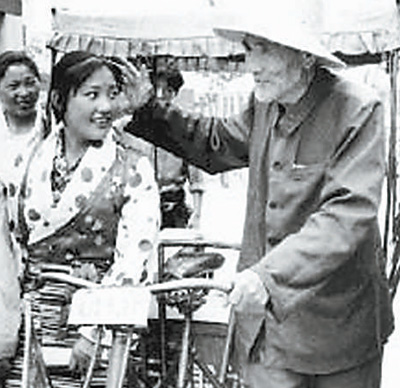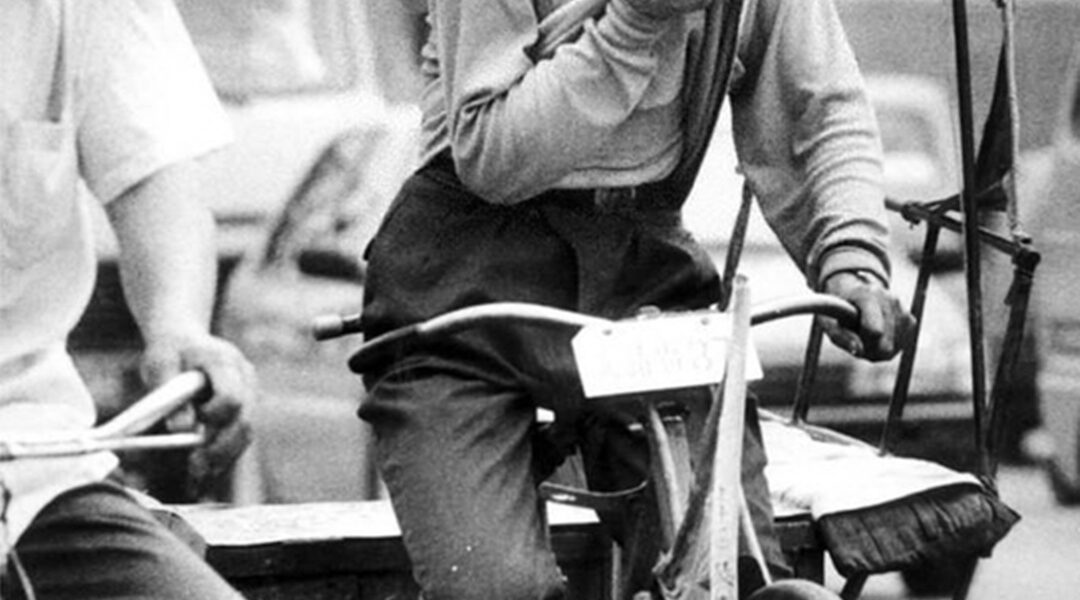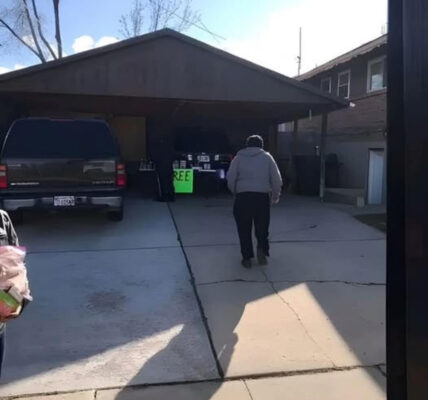In the winter of 1987, 74-year-old Bai Fangli returned to his hometown in Hebei Province, exhausted from a lifetime of grueling work as a rickshaw driver in the city. His body was frail, his hands calloused, and his back bent from decades of pulling passengers through the crowded streets of Tianjin. He thought at last he could rest, live out his final years in peace, and let life grow quiet around him.
But peace was not what he found.
In the fields near his village, Bai noticed children laboring under the sun, their small bodies burdened by work that belonged to adults. He watched as they bent over rows of crops instead of schoolbooks, their futures traded away for the simple fact that their families could not afford the cost of education.
Bai stood still and realized his rest would have to wait.
He returned to Tianjin, back to the familiar rattle of his rickshaw. He found a modest, bare-bones room near the train station—small enough for a bedroll and little else. From there, he resumed work. Not part-time. Not when it was convenient. He was available 24 hours a day, waiting for customers at dawn, at dusk, and long into the night.
His meals were plain, almost austere: steamed buns, bowls of rice, the cheapest vegetables. His clothes were worn, hand-me-down garments salvaged where he could find them. He denied himself everything that was unnecessary, saving every coin.
Every ounce of effort, every bead of sweat, was no longer for his own survival. It was for the children.
Bai’s first donations were modest—enough to cover a few students’ school fees. But as the years passed, he poured more and more of his earnings into young lives. He worked harder, often sleeping just a few hours, pushing his body far beyond its limits so that children he barely knew could sit in classrooms instead of fields.
He gave what little he had, and he gave it joyfully.
Stories of the elderly rickshaw driver who lived in poverty so others could study began to spread. People whispered of his sacrifice: an old man in ragged clothes who carried passengers by day and by night, while quietly carrying the futures of countless children on his shoulders.
By the late 1990s, Bai Fangli was well into his eighties. His hair was silver, his body bent and frail, but still he pedaled. Still he saved. Still he gave.
In 2001, almost 90 years old, Bai made his final journey to Tianjin YaoHua Middle School. His steps were slow, his body weak, but his spirit unshakable. In his hands, he carried the last of his savings.
He stood before students and teachers and explained, softly, that he could no longer work. His body had finally given out.
The room fell silent. Many in the audience wept. They understood they were witnessing the close of a chapter written in sacrifice and love—a man who had denied himself everything so that others could have something as precious as education.

Over the course of nearly two decades, Bai Fangli had donated 350,000 yuan—the earnings of his rickshaw work—to fund the education of more than 300 poor students.
He had lived in poverty his entire life, but he left behind something far greater than wealth: opportunity, dignity, and hope for hundreds of young people who might otherwise have been lost to poverty.
In 2005, Bai Fangli passed away. His funeral was modest, just like his life. But the legacy he left behind resounded far beyond the narrow streets where he once pedaled his rickshaw.
Bai Fangli’s story is not one of privilege, nor of great fortunes donated by the wealthy. It is the story of an ordinary man, uneducated and poor, who saw injustice and chose to act. His greatness was not in what he possessed, but in what he was willing to give away.
He wore hand-me-down clothes. He ate the simplest of meals. He slept in a bare room near a noisy train station. And yet he gave away more than most of us ever will.
If a man like Bai—armed with nothing but a rickshaw, a pair of hands hardened by labor, and a heart that refused to ignore the suffering of children—could send 300 young people to school, what does that say about the rest of us?
What could we do with the privileges and resources we already have?

Bai Fangli’s life is a challenge to all of us. It is a reminder that change does not always come from the powerful. Sometimes, it comes from the quiet perseverance of those who give not from their abundance, but from their sacrifice.
He reminds us that the true measure of wealth is not how much we keep, but how much we are willing to give for the sake of others.
He reminds us that education is not just a privilege, but a right worth fighting for.
And he reminds us that greatness is not written in titles or possessions, but in compassion lived out, day after day, mile after mile, in the simplest, hardest ways.
Bai Fangli lived and died a poor man. But in truth, he was one of the richest men the world has ever known.




